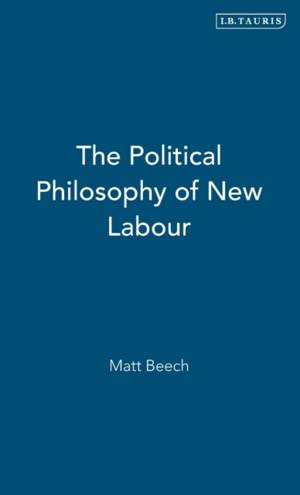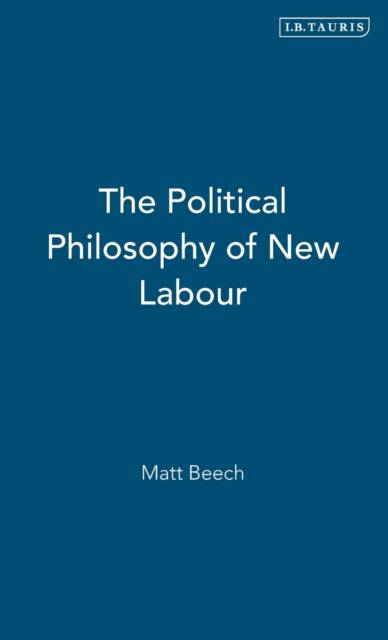
Bedankt voor het vertrouwen het afgelopen jaar! Om jou te bedanken bieden we GRATIS verzending (in België) aan op alles gedurende de hele maand januari.
- Afhalen na 1 uur in een winkel met voorraad
- In januari gratis thuislevering in België
- Ruim aanbod met 7 miljoen producten
Bedankt voor het vertrouwen het afgelopen jaar! Om jou te bedanken bieden we GRATIS verzending (in België) aan op alles gedurende de hele maand januari.
- Afhalen na 1 uur in een winkel met voorraad
- In januari gratis thuislevering in België
- Ruim aanbod met 7 miljoen producten
Zoeken
Omschrijving
Is New Labour more style than substance? Are its policies merely driven by pragmatism? Little has been published on the party's core ideas, the very existence of which is contested. This book is a study of the political philosophy of New Labour. Matt Beech approaches the study of New Labour's political philosophy in two ways. The first section of the book attempts to place New Labour in the intellectual history of the Labour Party and to set the context out of which New Labour has developed. It charts the intellectual history of the Labour Party from its nineteenth century origins in the Labour Movement, through the twentieth century, and into the 21st Century.The second section is an analysis of the basic ideas of New Labour and their contemporary interpretation of traditional values such as equality, liberty and community. This is then compared to New Right and various 'Old Labour' or traditional social democrat perspectives on these values. Matt Beech claims that New Labour in power is a revisionist social democratic government.
Beech argues that New Labour believes in positive as well as negative liberty, prioritarian conceptions of equality that focus on the poorest groups in society and believes in a communitarian social philosophy.
Beech argues that New Labour believes in positive as well as negative liberty, prioritarian conceptions of equality that focus on the poorest groups in society and believes in a communitarian social philosophy.
Specificaties
Betrokkenen
- Auteur(s):
- Uitgeverij:
Inhoud
- Aantal bladzijden:
- 280
- Taal:
- Engels
- Reeks:
Eigenschappen
- Productcode (EAN):
- 9781845110413
- Verschijningsdatum:
- 25/11/2005
- Uitvoering:
- Hardcover
- Formaat:
- Genaaid
- Afmetingen:
- 141 mm x 224 mm
- Gewicht:
- 453 g

Alleen bij Standaard Boekhandel
+ 593 punten op je klantenkaart van Standaard Boekhandel
Beoordelingen
We publiceren alleen reviews die voldoen aan de voorwaarden voor reviews. Bekijk onze voorwaarden voor reviews.









